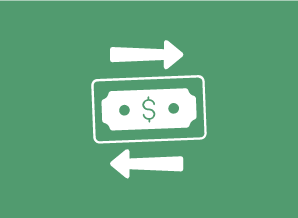Data Disclosure
Annual de-risking reports from banks to regulators, with sectoral/demographic data
De-banking in Canada often takes place with little public visibility — yet its consequences are far-reaching. Though intended as a risk management tool, it has disproportionately affected Muslim-led and humanitarian charities, racialized individuals, and organizations working in or linked to regions deemed “high-risk.” These outcomes are not random. They reflect broader systemic patterns in how financial risk is assessed and managed — patterns that deserve closer scrutiny.
For example, no public reporting exists on how many accounts are closed each year for “compliance risk.”
For example, no demographic breakdowns are published by regulators like the FCAC or OSFI.
For example, no explanations are required from banks—even when entire communities are affected.

Without data, there’s no accountability. Charities can’t correct false assumptions, negotiate safeguards, or even defend their record — because they’re not told what triggered the closure.
Example: In 2022, the National Council of Canadian Muslims (NCCM) published The Untold Story of De-Banking, exposing how Muslim-led and humanitarian charities were losing banking access with no due process. Much of the evidence came from leaked letters — not from official oversight.

Muslim-led and humanitarian charities operating in Muslim countries where an emergency crisis exists are flagged as high-risk, even when they are fully compliant with the CRA
Major mosques and humanitarian groups have had accounts closed with 30 day notice, sometimes impacting millions of dollars of donations for beneficiaries.
Donation platforms have pulled services, cutting off funding flows and delaying aid to orphans, refugees, and families in crisis.

A well-established Canadian charity that relied on a leading CRM and donation processing platform—used widely across the nonprofit sector—was abruptly deplatformed without warning. This CRM handled the charity’s entire recurring donations infrastructure, which accounted for the majority of its revenue.
On a regular morning, the charity was notified that its donation processing would be terminated immediately, with no prior notice, no formal explanation, and no recourse mechanism. After difficult and escalating conversations with the platform’s senior leadership, a brief grace period was granted—though by then the operational disruption had already begun.
The CRM platform cited its bank as the reason, yet provided no written rationale, no chance for the charity to present mitigating information, and no clear escalation pathway. This “pass-the-blame” dynamic exemplifies a broader systemic issue: even intermediaries (CRMs, payment processors) outsource risk decisions to financial institutions, leaving charities with no voice and no defense.
In another case, a charity whose CRM provider terminated its payment processing soon after received a 30-day account closure notice from its Canadian bank — suggesting a domino effect, likely triggered by interlinked financial relationships between the processor and the bank.
Despite escalating to the banking ombudsman, the charity received no resolution or recourse. The charity was forced to migrate to a credit union and identify alternative processors. It had to build a redundant donation processing infrastructure to avoid future disruption. This significantly increased administrative burden and financial overhead.
For most charities, donation processing platforms are a lifeline — especially as digital and recurring donations now represent the majority of fundraising revenue.

How aid workers—particularly those on international missions—face account closures and delays despite lawful activities.
A humanitarian personnel was deployed by a Canadian humanitarian organisation to Syria. The person was Canadian; their entire life was in Canada. One day, this staff member called HQ and asked for help. They had received notice that their bank account was being closed down immediately. There was little to no explanation for why. Colleagues at HQ inquired why the account had been closed. The bank said that it was because it looked like there was potentially unlawful banking taking place on the account. Their definition of what was unlawful was that it was taking place in Syria; otherwise it was a completely lawful transaction.
As a result of the bank closure, the person was in potential default of their mortgage payment and other recurring payments. As a result of the closure, the humanitarian worker had to spend days and nights working on rectifying their financial status in Canada instead of focusing on their work in Syria. These instances cause a ripple effect through the humanitarian community.
| Country | Right to Bank Account | Closure Notice | Explanation Required | Appeal Path |
|---|---|---|---|---|
|
|
Yes – “Droit au compte” | Yes | Written reason required | Banque de France |
|
|
Basic banking for NPOs | Yes | Justification required | Government chamber |
|
|
Only for individuals | 90 days | Unless police object | FCA oversight |
|
|
No legal right | Yes | Partial (via code) | AFCA Ombudsman |
|
|
No legal right | Yes | No duty to explain | Partial (anti‑bias laws) |
|
|
No legal right | 30 days | No requirement | No binding recourse |
Require financial institutions to report account closures and explain decisions where no investigation is underway.
Launch a public audit into how Muslim and racialized communities have been affected.
Add civil society voices to AML advisory tables — not just banks, regulators, and police.
Create a right to basic banking access for registered nonprofits, with appeal rights.